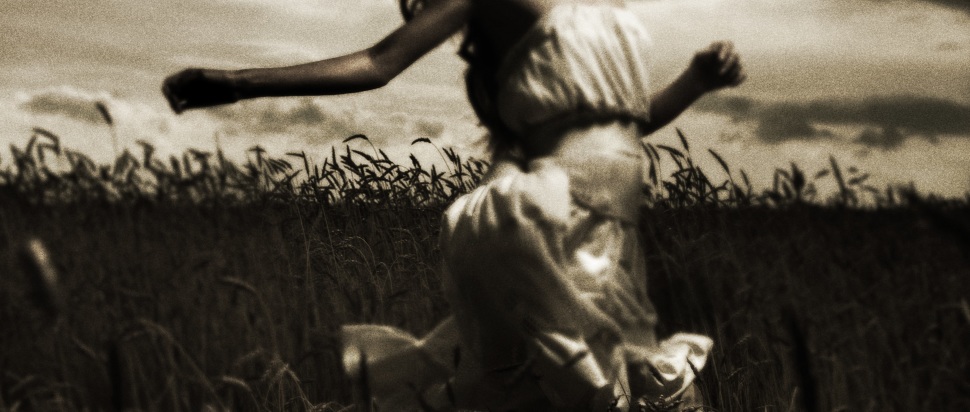Unearthing Sunset Song: In Conversation with Morna Young and Finn den Hertog
An ambitious co-production between Dundee Rep and the Royal Lyceum uses Doric and English to delve deep into the human experience
This month, a radical adaptation of Lewis Grassic Gibbon’s beloved novel Sunset Song takes to the stage in a co-production between Dundee Rep and The Lyceum. Set against the rapidly changing landscape of north-east Scotland on the brink of World War One, director Finn den Hertog describes this as an “elemental and primordial” production that excavates the novel’s grittier themes. “We wanted to get back to the brutality of the book. It’s a book about a life. It's a book about the land. It's a book about trauma. It's a book full of rich, thrilling characters and opposites and dichotomies.”
This complexity is focused through protagonist Chris Guthrie as she is pulled between worlds, played out in a binary between spoken Scots and English. When she first encountered the book at school, writer Morna Young saw something of herself in Guthrie. “The idea of the two Chrisses perfectly described my own experience as I navigated speaking English or Northeast Scots.” Young has worked extensively with Scots language and is a passionate advocate for its place on the stage. In this script, she has “embraced the beauty, rhythm and texture” of the language to create a “contemporary Doric for my own version of understandability and musicality.” This work is both personal and political; “I hope that my presence as a working-class woman and as a Doric speaker offers visibility for others.”
The drama is played out in what den Hertog and Young describe as a cyclical ‘heroine’s journey’, embodied in Guthrie and the shifting land around her. “The cycles of the seasons, echoed in Chris’s own life, feel deeply intimate and give us a beautifully close lens on sex, childbirth and the female body,” says Young. “The cycle of farming, the cycles of the body, the cycle of life allow us to understand Chris’s evolving sense of self.” den Hertog adds that “Chris recognises and absorbs all of the pieces of good and bad in her world. She tells us to listen to all those bits of ourselves in order to be the people that we need to be.”
The production features a new score by composer Finn Anderson. Young and Anderson previously collaborated on The Snow Queen (2023) and she “couldn’t think of anyone more suited to the weaving of textual detail, sound and melody,” in Sunset Song. The music will be performed by what den Hertog describes as a "choral voice that personifies the land, almost like a Greek chorus. It felt right that the land should speak primarily through song. The land has a deep, ancient singing voice.”
Implied in minimal, impressionistic staging, this figurative land is the bedrock of the play. It is where audiences can unearth fragments of the past that sing to the immense possibilities of the future. For den Hertog, this touches on the concept of deep time, explored in allusions to geological and cosmological timeframes that extend beyond human comprehension. “There are echoes in a place like this. There is blood in the soil and there are ghosts in the trees. The land is an entity to be encountered.” For Young, it’s important to remember that the land is also a crucible for human experience. “Sunset Song celebrates human spirit and resilience, whilst reminding us that such spirit always passes in the blink of an eye.”
This examination of deep time asks us to reflect on how our actions affect the future. In a time of climate crisis and fractured global identities, this is searingly relevant. Even the smallest of gestures or utterances can shape what is yet to come.
Sunset Song, Dundee Rep, 13 Apr-2 May; His Majesty’s Theatre, Aberdeen, 8-11 May; Eden Court, Inverness, 16-18 May; Royal Lyceum Theatre, Edinburgh, 28 May-8 Jun
